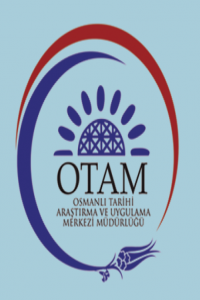Neresi Sıla, Neresi Gurbet? Amsterdam'daki Osmanlı Rumlarında Mekân ve Kimlik İlişkisi
Amsterdam, Osmanlı Rumları, mekân, kimlik, Yunanistan
Where is Homeland, Where is Foreign Land? Relationship Between Space and Identity in the Ottoman Greek Orthodox in Amsterdam
Amsterdam, Ottoman Greeks, space, identity, Greece,
___
- “Le buste de Coray”, Journal des débats politiques et literaires, 7 Nisan 1895, s. 3.
- ANDRIOTIS, N. (ed.). “Το Χρονικό του Άμστερδαμ”, Νέα Eστία, 10 (1931), s. 846- 853, 914-920.
- BEAUJOUR, Felix, “Primitive Industry: The Spun Red Cotton of Ambelakia, Thessaly”, The Movement for Greek Independence, 1770-1821, (ed.) Richard Clogg, The Macmillan Press, Londra ve Basingstoke 1976, s. 32-36.
- ILIOU, Filippos (ed.), Γράμματα από το Αμστερνταμ, Ekdotiki Ermis, Atina 1976.
- MEROUSIS, Konstantinos I. (ed.), Βίος Αδαμαντίου Κοραή συγγραφείς παρά του ιδίου, Periferia Voreiou Aigaiou Perifereiaki Enotita Chiou, Sakız 2013.
- NANNINGA, J. G. (ed.), Bronnen tot de Geschiedenis van den Levantschen Handel, 1765– 1826, Martinus Nijhoff, Lahey 1966.
- RALLI, Pandeli (ed.), Koray’s Letters Written from Paris, 1788-92, Hatchards, Londra 1898.
- BAĞIŞ, Ali İhsan, Osmanlı Ticaretinde Gayri Müslimler: Kapitülasyonlar, Avrupa Tüccarları, Beratlı Tüccarlar, Hayriye Tüccarları, 1750-1839, Turhan Kitabevi, Ankara 1998.
- CENTRAAL BUREAU VOOR GENEALOGIE EN HERALDIEK, Nederland’s Patriciaat: Centraal Bureau voor Genealogie en Heraldiek, Lahey 1919.
- ÇOLAK, Hasan ve Elif BAYRAKTAR-TELLAN, The Orthodox Church as an Ottoman Institution: A Study of Early Modern Patriarchal Berats, The Isis Press, Istanbul 2019.
- ÇOLAK, Hasan, “Amsterdam’s Greek merchants: Protégés of the Dutch, beneficiaries of the Russians, subjects of the Ottomans and supporters of Greece”, Byzantine and Modern Greek Studies, Sayı 42/1 (2018), s. 115-133.
- ÇOLAK, Hasan, “Aydınlanmanın Osmanlı Dünyasındaki Erken Etkileri ve Ioannis Pringos (1725-1789)”, Hacettepe Üniversitesi Türkiyat Araştırmaları Dergisi, Sayı 29 (2018), s. 79-102.
- DE GROOT, Alexander H. “The Netherlands and Turkey: Four Hundred Years of Political, Economical, Social and Cultural Relations”, ed. Alexander H. de Groot, The Netherlands and Turkey: Four Hundred Years of Political, Economical, Social and Cultural Relations. Selected Essays, Artpress: İstanbul 2007, s. 8-28.
- FINDLEY, Carter V. “The foundation of the Ottoman Foreign Ministry: the beginnings of bureaucratic reform under Selim III and Mahmud II”, International Journal of Middle East Studies, Sayı 3/4 (1972), s. 388-416.
- KADI, İsmail Hakkı, “On the edges of an Ottoman world: non-Muslim Ottoman merchants in Amsterdam”, The Ottoman World, ed. Christine Woodhead, Routledge, Londra 2011, s. 276-288.
- KADI, İsmail Hakkı, Ottoman and Dutch Merchants in the Eighteenth Century: Competition and Cooperation in Ankara, Izmir, and Amsterdam, Brill, Leiden 2012.
- KAPANIARIS, Alexandros G. ve Nikos G. TSOUKAS, Ήρθαν τα καράβια τα ζαγοριανά: όψεις και μνήμες της ναυτιλίας και του εμπορίου στο Ανατολικό Πήλιο (1600-1960), Magniton Kivotos, Volos 2015.
- KOSTER, Daniël, “Dutch Philhellenism and the Greek merchants of Amsterdam”, Pharos, Journal of the Netherlands Institute at Athens, Sayı 6 (1998), s. 25-61.
- KOSTER, Daniël, To Hellen’s Noble Land... Dutch Accounts of travelers, geographers and historians on Greece (1488-1854) / Στην ‘Ενδοξη Ελλάδα... Ολλανδικές αφηγήσεις περιηγητών, γεωγράφων και ιστορικών για την Ελλάδα, The Netherlands Institute at Athens, Atina 1995.
- KREMMYDAS, Vasillis, “Ο Κοραής στο Άμστερδαμ. Η μύηση στους κόσμους του Διαφωτισμού και οι αντιστάσεις”, in Christos Loukos (ed.), Κοινωνικοί αγώνες και Διαφωτισμός: Μελέτες αφιερωμένες στον Φίλιππο Ηλιού, Panepistimiakes Ekdoseis Kritis, Irakleio 2007, s. 1-13.
- MASTERS, Bruce, “The Sultan’s entrepreneurs: The Avrupa Tüccarıs and the Hayriye Tüccarıs in Syria”, International Journal of Middle East Studies, Sayı 24/4 (1992), s. 579-597.
- MİLLAS, Herkül, Yunan Ulusunun Doğuşu, İletişim Yayınları, İstanbul 2015.
- PETMEZAS, Sokratis D. Recherches sur l’Economie et les Finances des villages du Pélion, région d’industries rurales, ca 1750-1850, Yayımlanmamış Doktora Tezi, Danışman: Hélène Antoniadis-Bibicou, Paris 1989.
- SCHUTTE, O. Repertorium Der Nederlandse Vertegenwoordigers, Residerende in het Buitenland, 1584-1810, Martinus Nijhoff: Lahey 1976.
- SKOUVARAS, Vangelis, Ιωάννης Πρίγκος (1725-1789): Η ελληνική παροικία του Άμστερνταμ, η σχολή και η βιβλιοθήκη Ζαγοράς), Istoriki kai Laografiki Etaireia ton Thessalon: Atina 1964.
- SLOT, Ben J. “Commercial activities of Koraïs in Amsterdam”, Ο Ερανιστής, Sayı 16 (1980), s. 55-139.
- SLOT, Ben J. ve Daniël KOSTER (ed.) Dutch Archives and Greek History: A Guide to Dutch Archives and Libraries Concerning the History of the Greeks and the Greek World between 1250 and 1940, Netherlands Institute in Athens: Atina 2007.
- SLOT, Ben J. “Oλλανδοί πρόξενοι Μήλου-Κιμώλου”, Κιμωλιακά, Sayı 8 (1978), s. 157- 267.
- TABAKI, Anna, “Adamantios Korais (Smyrna 1748-Paris 1833): Ideology, Philosophy, Philology, Comparison and the Notion of Hellenic ‘Regeneration’”, The (In)comparable in the European Litteratures: Contributions in Honour of Professor Roumiana L. Stantcheva, ed. Rusana Beyleri, Fotiny Christakoudy- Konstantinidou, Borislava Ivanova, Sofia University St. Kliment Ohridski, Sofya 2018, s. 29-38.
- VAN DEN BOOGERT, Maurits H. “Ottoman Greeks in the Dutch Levant trade: collective strategy and individual practice (c. 1750-1821)”, Oriente Moderno, Sayı 86 (2006), s. 129-147.
- VAN DEN BOOGERT, Maurits H. Kapitülasyonlar ve Osmanlı Hukuk Sistemi: 18. yüzyılda kadılar, konsoloslar ve beratlılar, Türkiye İş Bankası Kültür Yayınları, İstanbul 2008.
- ISSN: 1019-469X
- Yayın Aralığı: Yılda 2 Sayı
- Başlangıç: 1990
- Yayıncı: Ankara Üniversitesi
Osmanlı Sefaret ve Şehbenderliklerinin Kalpazanlıkla Mücadelesi
Sarhoşluktan Keyif Haline: Osmanlı İstanbul'unda İçki İçme ve Meyhâne Âdâbı
Neresi Sıla, Neresi Gurbet? Amsterdam'daki Osmanlı Rumlarında Mekân ve Kimlik İlişkisi
19 Numaralı Şer'iye Siciline Göre Kırşehir'de Aile
Özlem POYRAZ, Mustafa BEKDEMİR
17. Yüzyılın İkinci Yarısında Trabzon'da Toplumsal Şiddetin Bir Örneği Olarak Küfür
Eski Manyas'ta Erken Osmanlı Dönemine Ait Zaviyeli Cami ve Türbe
